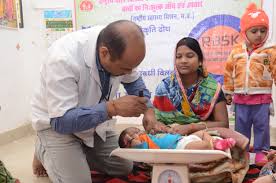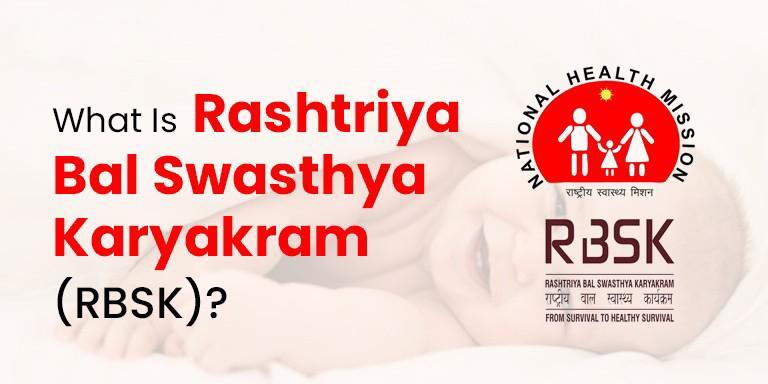 The Rashtriya Bal Swasthya Karyakram (RBSK) is a flagship initiative under the National Health Mission (NHM) of the Government of India. It aims to improve child health and address conditions that contribute to child morbidity and mortality. At Dhubri Medical College and Hospital (DMC), the RBSK program is implemented to ensure early detection and management of health conditions in children across Assam and the Northeast region.
The Rashtriya Bal Swasthya Karyakram (RBSK) is a flagship initiative under the National Health Mission (NHM) of the Government of India. It aims to improve child health and address conditions that contribute to child morbidity and mortality. At Dhubri Medical College and Hospital (DMC), the RBSK program is implemented to ensure early detection and management of health conditions in children across Assam and the Northeast region.

Early Detection: Identification of 4 "D" conditions—Defects at birth, Diseases, Deficiencies, and Developmental delays, including disabilities.
Timely Intervention: Provision of timely medical treatment and management to improve overall child health and development.
Equity in Healthcare: Ensuring that children from underserved and marginalized communities receive access to quality healthcare services.
Screening Services: Comprehensive health screening for children from birth to 18 years, including newborns, preschoolers, and school-going children.
Dedicated Teams: Mobile health teams comprising medical officers, paramedics, and community health workers conduct regular screenings in schools and anganwadi centers.
Referral System: Identified cases are referred to District Early Intervention Centers (DEICs) or higher medical institutions like DMC for further diagnosis and treatment.
Treatment and Follow-Up: Free treatment is provided for identified conditions, with regular follow-up to monitor the child's progress.
As a leading tertiary care institution, DMC plays a critical role in supporting the RBSK program by offering advanced diagnostic and treatment facilities. Key aspects of RBSK implementation at GMCH include:
Specialized Pediatric Services: DMC provides expert care for children diagnosed with congenital defects, nutritional deficiencies, and developmental delays.
Support for Complex Cases: Children requiring surgical interventions or specialized care, such as for congenital heart diseases or neurological disorders, are treated at DMC.
Collaboration with DEICs: The hospital works closely with District Early Intervention Centers to ensure seamless referral and treatment processes.
Training and Capacity Building: DMC supports training programs for RBSK health teams to enhance their diagnostic and management skills.
The implementation of RBSK at DMC has had a significant positive impact on child health in the region:
Improved Health Outcomes: Early detection and intervention have reduced the burden of preventable diseases and disabilities in children.
Enhanced Access to Care: Children from remote and underserved areas have gained access to quality healthcare through the referral system.
Community Awareness: The program has increased awareness among parents and caregivers about the importance of early health screening and intervention.
DMC is committed to strengthening the RBSK program by:
Expanding its pediatric facilities to cater to a larger number of referred cases.
Leveraging technology for better tracking and monitoring of treated children.
Increasing outreach and awareness programs to cover more schools and anganwadi centers.
By actively supporting the Rashtriya Bal Swasthya Karyakram, Dhubri Medical College and Hospital continues to contribute to the vision of a healthier and brighter future for children across Assam and the Northeast region.